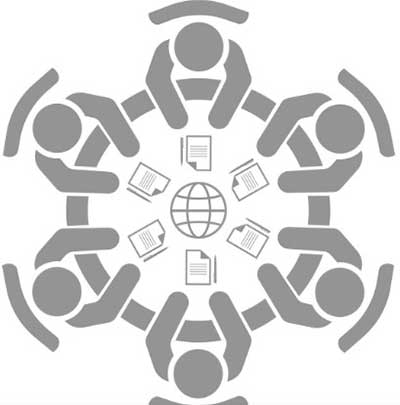Relevance: GS-2: Global Groupings and Agreements involving India and/or affecting India’s interests.
Key Phrases: QUAD, 14th BRICS summit, 48th G7 Summit, NDB, BRICS CRA, BRICS Business Forum, BRICS Women Business Alliance, Technology led-growth, Innovation-led economic recovery;
Why in News?
- India was part of important multilateral negotiations in the span of a
few weeks. These are
- G7
- BRICS meeting
- Apart from this, it also engaged in the QUAD summit and a bilateral meeting with UAE.
- Due to a clash of interests among some members, Multilateral institutions are becoming increasingly difficult to have consensus on important issues.
Key Highlights
BRICS Summit
- 14th edition took place in Beijing, China.
- Indian PM attended the edition virtually.
- The group called for a dialogue between Russia and Ukraine.
- Indian PM stressed the importance of BRICS in Global post-pandemic economic recovery.
- Russian President called for strengthening BRICS.
- Chinese President focused on rejecting the cold war mentality and opposing unilateral sanctions imposed by Europe and the US on Russia.
- Issues
- Disparity in Political status at UNSC
- Russia and China are permanent members of UNSC, whereas the other 3 have aspirations of becoming permanent members of UNSC.
- China has stalled the expansion of the UNSC on the grounds of it being the sole representative of the developing countries.
- A sea change in the dynamics of BRICS due to Galwan
- Due to China’s aggression and unilateral move to alter the ground situation in Galwan, there were calls for India to boycott the meeting to be held under the chairmanship of China.
- Russia-China Link
- Even in the 1962 war, Russia didn’t support India because of its ‘Brother or the Friend dilemma’
- Post Russia-Ukrain War, Russia would be legally obliged to take the side of China at the time of future clashes with India.
- China’s hegemonistic thinking and misusing forum to achieve its
agenda
- China attempted to hijack the grouping, by a blueprint it has prepared for the new world order.
- Disparity in Political status at UNSC
- Indian PM called for
- BRICS Business Forum to be developed as a platform for regular exchanges between start-ups in BRICS countries.
- “Innovation-led economic recovery” should be the mantra for post-pandemic Global Economic Recovery.
- Technology-led growth forms a key pillar of India’s growth.
- innovation-friendly policies in many areas like space, blue economy, green hydrogen, clean energy, drones, and geo-spatial data.
- The value of the Indian digital economy will reach 1 trillion dollars by 2025.
- BRICS Women Business Alliance can undertake a study on this transformative change in India and the same can be applied in other countries to re-attain the previous level of growth.
BRICS
- It stands for the acronym of 5 countries - Brazil, Russia, India, China and South Africa.
- The name was coined by Goldman Sachs economist Jim O'Neill in 2001.
- They were expected to collectively dominate global growth by 2050
- It has the possibility of developing a non-western global economic system.
- Other initiatives by BRICS
- New Development Bank
- It was announced as part of the Fortaleza Declaration at the 6th BRICS summit.
- It provides developmental loans to the nations.
- It is considered a competitor of the World Bank.
- BRICS Contingent Reserve Arrangement
- The declaration for BRICS CRA was signed at the 6th BRICS summit.
- But, it was established in the 7th Summit.
- It is considered a competitor of the International Monetary Fund.
- Aim is to forestall short-term liquidity pressures, provide mutual support and further strengthen financial stability.
- New Development Bank
G7 Summit
- 48th G7 Summit was organised in Germany.
- Like last year, India has been invited for this year as well.
- The G7 made its own statement on the Ukraine war on expected lines and India was only involved in other issues such as environment, energy, climate, food security, health, gender equality and democracy.
- Issues
- G7 has been vocal about Russia and Ukraine war and criticised India for not taking a stance against Russia.
- As this summit was a war summit,
- No actions were taken on other important topics which India had proposed.
- Reduction in imports has to be followed by all countries, even if
this move has hurt growth and demand in Japan, Germany and France
- India has called for an exception, which has raised eyeballs among QUAD countries.
- They had expectations of putting out a joint statement against Russia.
Bilateral over Multilaterals
- Indian PM on his way back from the G7 summit visited UAE for a bilateral meeting
- Achievements
- Celebrated 50 years of diplomatic relations between the two
countries.
- Delhi and Abu Dhabi started diplomatic relations in 1972.
- A Statement was released to establish a roadmap for a future-oriented partnership between India and UAE and identify focus areas and outcomes.
- Attempted to mend the soured relation between India and the West Asian Nations on Prophet Mohammed's row.
- Celebrated 50 years of diplomatic relations between the two
countries.
Conclusion
- Multilateral negotiations will be increasingly difficult in the present chaotic global situation. It is only by working bilaterally with potential allies that India can attain the status of a pole in the new world with steadfast friends and followers.
Source: The Hindu
Mains Question:
Q. ‘Multilateral negotiations will be increasingly difficult in the present chaotic global situation.’ Analyse the statement in light of recent meetings of G7 and BRICS. What should be the way forward for India?







